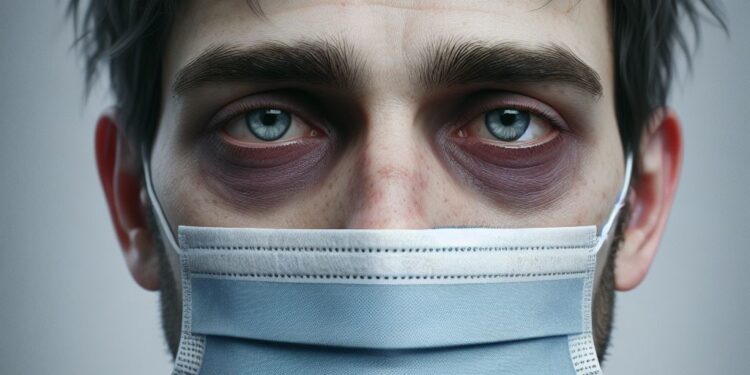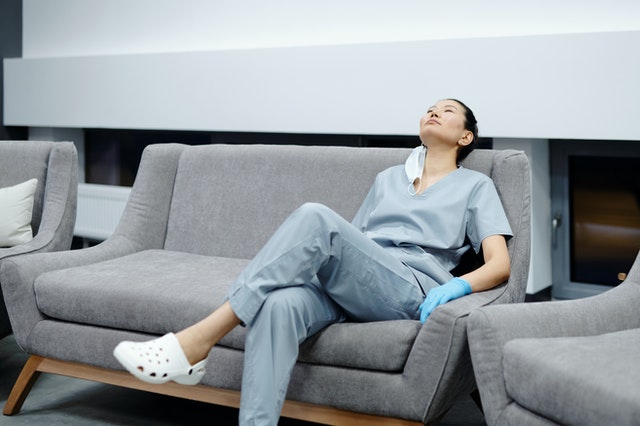
Practicing medicine is making us sick physicians. In this article, we explore how medicine is making doctors ill.
Doctors in the US have some of the highest burnout, mental illness, addiction, and suicide rates in the world. Medical student and physician burnout and suicide are a “silent epidemic“. Over 50% of US physicians are burned out (up to 80% in some specialities). One study found 20% of medical residents met diagnostic criteria for clinical depression while 74% met criteria for burnout.
COVID has not helped the situation – in the US or globally. And all types of healthcare workers are affected.
Yet even with high rates of illness and substantial medical know-how, medical students, residents, and specialist physicians rarely seek treatment. The trend starts early: disturbingly in another example (there are many) while 27% of medical students exhibited depressive symptoms, only 16% sought treatment.
That’s a lot of sick physicians (and future physicians) with a lot of untreated mental illness.
That is one physician takes their own life every day of the year, including (of course) weekends. As a result, each year, a shocking million patients lose their doctors to suicide in the US alone.
Globally it must be hundreds of millions of affected patients, and thousands of doctors.
Despite living in a country with an enviable healthcare system, enormous opportunities, world-leading research, and hard-won freedoms, our healers are sick.
The global picture is hardly better. Physician burnout, breakdown, and suicides are evident in many, if not all, countries in the world.
... each year, a shocking million patients lose their doctors to suicide in the US alone. Globally it must be hundreds of millions of affected patients.
Each physician lost to suicide represents not only an inconceivably tragic loss of life but also a loss to the world: a child, parent, colleague, friend, physician, researcher…
If they had lived, how many lives may they have saved?
Slowly, the huge human and economic costs of sick physicians, doctor burnout, and doctor suicide seem to be raising eyebrows in our hospitals, medical organizations, and governments.
How is it possible that a group of intelligent, dedicated, kind, well-paid, and respected professionals, who get to improve (or give comfort, and even save) lives using hard-earned skill and knowledge, are reluctant to seek help, and some tragically take their own lives?
And what can be done about it?
Answer: It’s complicated.
To try to answer these profound life-or-death questions, we could fearlessly point out some of the systemic factors influencing physician well-being and the barriers preventing physicians from reaching out for help.
Then we could develop solutions together.
Each physician lost to suicide represents not only an inconceivably tragic loss of life but also a loss to the world: a child, parent, colleague, friend, physician, researcher… If they had lived, how many lives may they have saved?
Long before COVID hit our world and our well-being, doctors and our fellow health professionals were struggling mentally. The healing professions are under increased pressure and scrutiny, with worsening punishments in the form of malpractice suits and regulatory reactions. Systems are all looking to shift risk and blame.
The public expects more and more from the promises of science. Society is increasingly impatient, expecting instant, cheaper, and perfect results.
Medicine (and life) just isn’t like that.
It’s a messy, complicated world. The best meta-analyses rarely have the answer for the patient in front of us with their list of real-world issues – which usually look like exclusion criteria for the RCTs supposedly informing our decisions.
Doctors are held to higher standards than other professions (and rightly so), so the pressure to perform is greater for us. We cannot be seen to slip let alone fail. Many of us feel that we need to present an image of competence and confidence at all times.
If we do make a mistake we are likely to be sued, or worse. Malpractice insurance is exorbitant. Defensive medicine reduces the positive risk-taking that we are trained to use. If in doubt, scan. Several specialties are struggling to recruit doctors because of the malpractice risks.
... the best meta-analyses rarely have the answers for the patient in front of us with their list of real-world issues -- which usually look like exclusion criteria for the RCTs supposedly informing our decisions.
Through the trials of medical school, we become skilled at hiding our feelings – it’s arguably an essential part of our training – because physicians need to keep a cool head while making life-changing decisions under immense pressure.
And we are often perfectionists with high personal standards. Again, a desirable quality in medicine. But unhelpful when the world is imperfect, we can’t control it, or we err as is human.
Moreover, life in medicine is more than a career for many. It’s a vocation.
Yet, what if medicine is making doctors sick, and we need to contemplate a career elsewhere? Having worked since high school to get into med-school, followed by residency, fellowship, and beyond, many of us can’t contemplate a “life outside of medicine”. Nor could we afford to leave for a lower paid position because of loans.
We are a high-risk group for suicide. And our knowledge and skills make completing suicide far more likely compared to the general population.
... a toxic mix of systemic and personal factors means we physicians are getting sick and dying. And then too few of us reach out for help. This needs to change.

In conclusion, a toxic mix of systemic and personal factors means we physicians are getting sick and dying.
And then too few of us reach out for help. This needs to change.
Read on to explore Why Struggling Physicians Don’t Seek Help.
If you would like to join other physicians in safe-space peer-support groups, please check out our groups here.
Please share our stories with your network!
